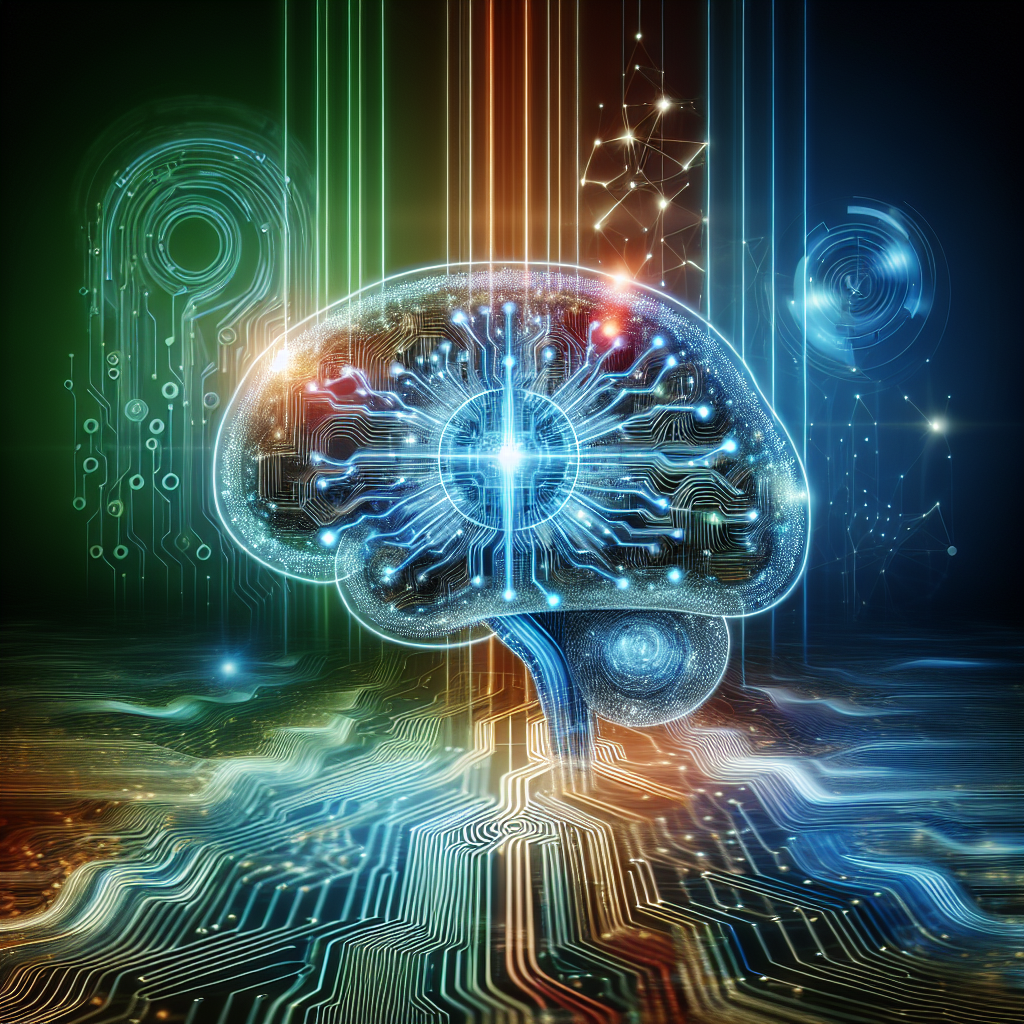Unleashing LLM’s Full Potential: The Self-Evolving Path to AI Mastery

Unleashing LLM’s Full Potential: The Self-Evolving Path to AI Mastery
Understanding how machines can better understand us, humans, is an ongoing challenge in artificial intelligence (AI). Enter a novel approach called Self-Evolved Reward Learning (SER), a game-changer in making large language models (LLMs) like ChatGPT and Llama even smarter—all while cutting down on costly human feedback. If you’re curious about machine learning and how AI is gently nudging the boundaries of what’s possible, buckle up as we unfold the magic behind SER!
Cracking the Code: Reinforcement Learning from Human Feedback
At the heart of conversational AI’s progress, techniques like Reinforcement Learning from Human Feedback (RLHF) work wonders. In simple terms, it’s like a teacher providing grades and guidance so the student (or AI, in this case) can sharpen its skills. The idea is for LLMs to understand nuanced human interactions better, making them more reliable companions for various tasks—think of a super-advanced spell-check, a creative writing partner, or a recommendation engine that just gets you.
However, RLHF has its downsides: expert opinions don’t come cheap. Plus, as these models advance, they might outgrow human help, akin to a student graduating from the tutelage of their teacher.
Here’s where SER steps in. Instead of relying heavily on human input, it uses existing data in a feedback loop, allowing the LLM to learn from its past actions, much like learning from your mistakes—but with an analytical twist that LLMs excel at.
A New Way Forward: Self-Evolved Reward Learning (SER)
SER proposes a new, independent learning pathway where an LLM refines itself over time, gradually understanding what makes a response good or bad. Think of it as a cycle: the LLM assesses its outputs, learns from predictions, and refines its thinking—using its “brainpower” to continually improve.
Cutting Down on the Middleman: Human Data
SER introduces a breath of fresh air by using only a small seed of human-annotated data—just 15% of the typical amount. This means SER casts aside the high costs and limitations of human labeling while maintaining, or even enhancing, model performance. Traditionally, training an AI required vast amounts of expensive human-labeled data. SER, however, bypasses this limitation.
Getting Smarter: Iteration Is Key
In this method, the model self-evaluates its learning status with each round of feedback, selecting the highest confidence data to inform further learning. Two primary learning phases guide this:
- Phase 1: Easy Peasy – The model identifies stark contrasts between good and bad answers, learning to discern obvious quality differences.
- Phase 2: Nuances Matter – Here, the LLM refines its skills by focusing on subtle differences, much like honing in on shades of grey rather than black and white.
Just like how iterative feedback in learning brings out the best in students, SER helps LLMs attain expertise with fewer human inputs.
Real-World Impact: Smarter, More Efficient AI
With SER’s approach, machines can potentially match or even exceed performances that relied on full human datasets. Imagine sparking creativity in writing, providing accurate translations, or understanding context in customer service—all supercharged by smarter, less resource-intensive AIs.
Cross-Model Success
The researchers validated SER by testing it on several popular models and datasets, showing consistent performance improvements. The upshot? Our trusty AI pals are evolving into even more adept learners, demonstrating potential improvements in accuracy of approximately 7.88% on average.
The Data Dilemma
SER shines, especially in data-scarce scenarios. It proves that with ingenuity (cue self-evolution), AI models can compete closely with those trained entirely on extensively annotated data—boasting mere pockets of just 15% of the original label dosage.
Future Prospects: Beyond Algorithmic Evolution
This clever learning twist opens doors to revolutionary training strategies, reshaping how AIs grow. The real challenge lies in creating even more autonomous frameworks—where machines fully embrace their self-learning journey without touching a speck of human input. Talk about self-sufficient scholars!
An exciting prospect is integrating SER within robust AI systems for broader applications, from enhancing AI’s creative support in writing and art generation to bolstering its precision in scientific and medical breakthroughs.
Key Takeaways
- Self-Evolved Reward Learning (SER) is a novel approach that allows large language models to improve by learning from their own outputs rather than relying on expensive and labor-intensive human feedback.
- Efficiency and Effectiveness: SER requires a fraction of the usual human-annotated data while still achieving—or surpassing—performance levels typically seen with full datasets.
- Real-World Impact: Enhancements in AI could lead to smarter applications that understand nuanced human preferences across various domains.
- The Future of AI Training: By reducing dependency on human data and improving self-learning techniques, AI models can break new ground in efficiency and performance, heralding a new era of autonomous learning capabilities.
SER shows how AI’s evolution can be less about enormous datasets and more about clever self-reinforcement. As AI continues to learn from its environment, systems like SER could pave the way for a smarter, more efficient future in AI advancement. Let’s watch this space as LLMs gear up for their self-driven learning revolution—one feedback loop at a time!
If you are looking to improve your prompting skills and haven’t already, check out our free Advanced Prompt Engineering course.
This blog post is based on the research article “Self-Evolved Reward Learning for LLMs” by Authors: Chenghua Huang, Zhizhen Fan, Lu Wang, Fangkai Yang, Pu Zhao, Zeqi Lin, Qingwei Lin, Dongmei Zhang, Saravan Rajmohan, Qi Zhang. You can find the original article here.




